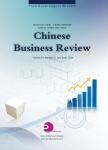The 2007-2009 Financial Crisis on Emerging Markets: Quantitative Identification of Crisis in Continent-based Regions
The 2007-2009 Financial Crisis on Emerging Markets: Quantitative Identification of Crisis in Continent-based Regions作者机构:Bialystok University of Technology Bialystok Poland University of Bialystok Bialystok Poland
出 版 物:《Chinese Business Review》 (中国经济评论(英文版))
年 卷 期:2014年第13卷第7期
页 面:411-426页
学科分类:12[管理学] 02[经济学] 0202[经济学-应用经济学] 1201[管理学-管理科学与工程(可授管理学、工学学位)] 020204[经济学-金融学(含∶保险学)]
主 题:emerging markets market states cross-market correlations contagion globalization
摘 要:This paper focuses on a direct quantitative identification of crisis periods in selected emerging stock markets from four continent-based regions of Europe, Latin America, East Asia, and Middle East and North Africa (MENA), in the context of an influence of the 2007 U.S. subprime financial crisis. The 17 emerging stock markets and, for comparison, the U.S. stock market are investigated. A statistical method of dividing market states into bullish and bearish markets, based on monthly logarithmic returns of major stock market indexes, is employed. The analyzed sample period begins in January 2003 and ends in December 2013. As there is no unanimity in the literature about the crisis periods in the continent-based regions, a formal statistical identification of crises is worthwhile to conduct. Furthermore, the effect of increasing cross-market correlations in the crisis compared to the pre-crisis period in the context of contagion is examining. To address this issue, both standard contemporaneous cross-correlations and volatility-adjusted cross-correlations are applied. The results are consistent with the literature and confn'm that tests for contagion based on cross-market correlations are problematic due to the bias introduced by changing volatility in market returns. As contagion can be confused with globalization, the globalization tests in the group of international investigated markets are employed. The results generally do not confirm a global world market integration effect, i.e. there is no reason to reject the research hypothesis of no globalization during the 2007-2009 financial crisis.



